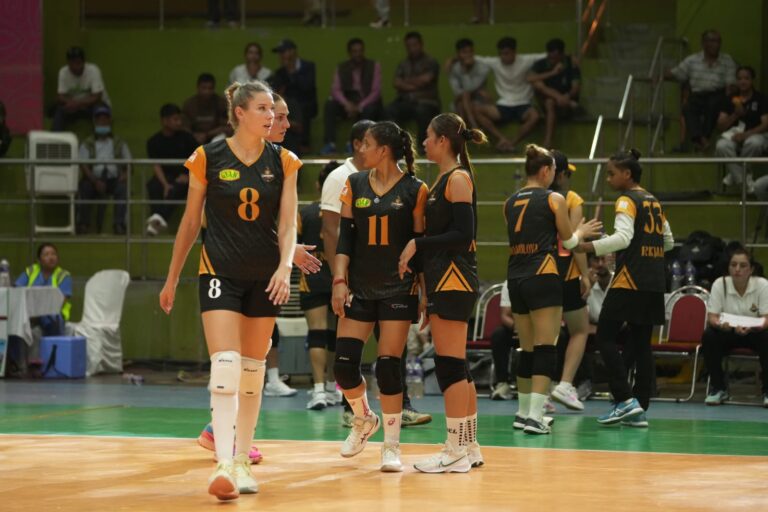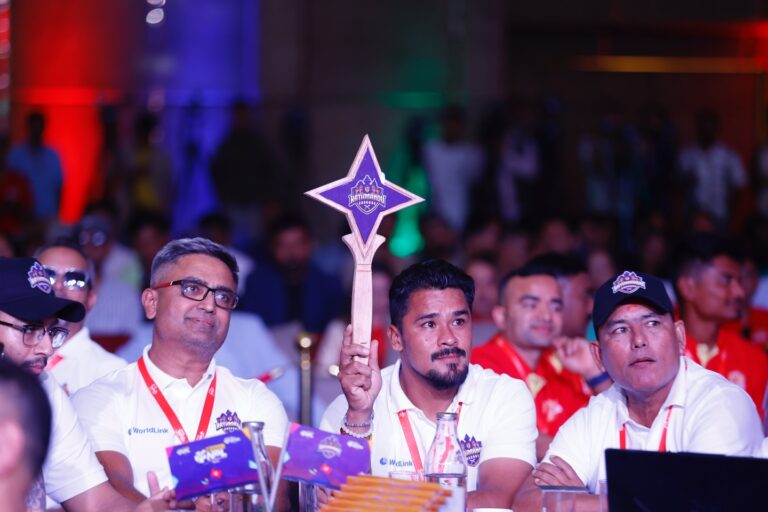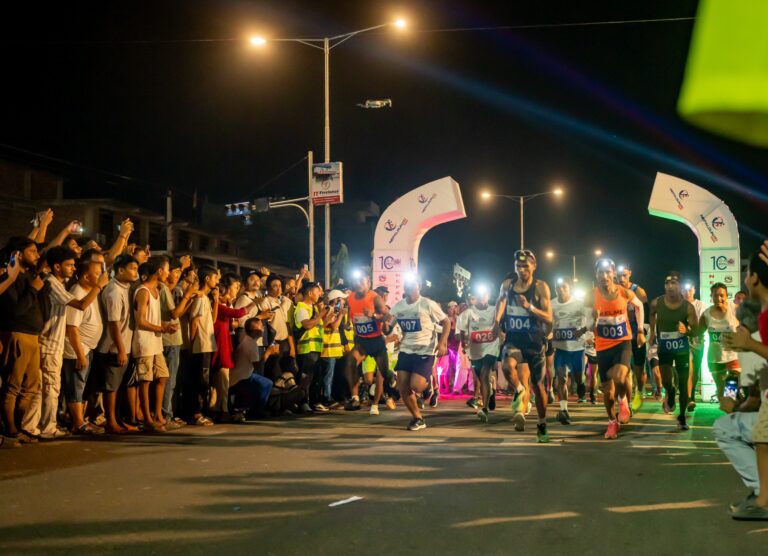
Tournaments are abruptly canceled as organizers lack investment and foreigners fear safety

KATHMANDU: On March 3, 2009, in Lahore, Pakistan, a bus carrying the Sri Lankan cricket team came under a sudden and fierce attack from gunmen. Amidst the chaos of gunfire, dust, and commotion, the bus driver, Meher Mohammad Khalil, showed extraordinary courage, navigating his vehicle through the ambush to safety.
“There was gunfire coming from all sides,” Khalil recalls the incident 16 years later in an interview with ABC Australia. “First, I thought about running away. But the players on the team were screaming, “Go! Go! Go!” Those words gave me even more courage. I felt that I had to protect the country’s guests.”
He safely took the bus to the stadium. In that incident, six police officers and two civilians lost their lives. Six players of the Sri Lankan team were injured. After that day, Pakistan’s image of sports hospitality was shattered beyond repair.
Exactly 16 years, seven months, and five days later, a similar incident was repeated in Kathmandu, about 1,482 kilometers away from Lahore. But in Kathmandu, the ones shooting were neither a group of gunmen nor were the ones being shot at foreign players. However, the sound of the police firing on the Gen Z who had taken to the streets in protest not only frightened the players playing the Everest Women’s Volleyball League in Pokhara but also gave the families of the foreign players who came to play the tournament a jolt, reminding them of the Pakistan incident.
A sudden sense of dread fell over Jitendra Bahadur Chand, president of the Nepal Volleyball Association, who was in Kathmandu at the time.
“The fear from the gunfire in Kathmandu was even felt by the families of the players who came to the league from as far as Thailand, Russia, and South Africa,” he told Nepal News. “Their volleyball associations were calling us constantly, asking if their players were safe. They pleaded with us to send them back as soon as possible. The atmosphere was very tense for two days.”
The Gen Z protest against the ruling party’s politics, which started in Maitighar on September 8, had not left Pokhara untouched. But, while 19 people lost their lives due to police firing on the first day in Kathmandu, life in Pokhara was normal. However, the incidents of arson and vandalism that started the next day were quite terrifying. There was arson near the hotel where the franchise was staying. The sky was suddenly covered with smoke. Players were forced to lock their doors and hide. The league was postponed. Three days later, the foreign players finally returned with great difficulty, but the Central Asian Volleyball Association (CAVA) Women’s Outdoor Volleyball League that the Volleyball Association was about to organize has been snatched from its grasp.

Chand said that CAVA’s plan to host an outdoor league for the first time was derailed. “If it had happened, it would have made history,” he said. “However, all five participating nations cited security concerns and refused to come.”
The tournament, which CAVA had scheduled for November 15 to 22, is now being prepared for a new venue in Kazakhstan.
Pakistan’s aftermath
Before the Gen Z protest intensified in Nepal, the scene at the Dashrath Stadium in Tripureshwar was different. At that stadium, an international friendly football match between Nepal and Bangladesh was taking place. The home crowd had the opportunity to watch a match of the national men’s team live for the first time in three years at this stadium, which the Asian Football Confederation (AFC) had repeatedly declared ineligible.
Kathmandu was engulfed in sorrow and chaos on September 9, just before the second friendly match. The loss of 19 lives sparked widespread arson and stone-pelting, causing pandemonium that even reached the Hotel Crowne Imperial, where the Nepali and Bangladeshi teams were staying.
Upon his return home, Bangladesh football captain Jamal Bhuiyan described the frightening scene: “A house right next to the hotel was set on fire. The protestors tried to enter the hotel on suspicion that some high-ranking individuals were hiding there. But they turned back after they were told that only the football team was there.” For Jamal and his teammates, this scene was unsettling but not new.
The previous year, they had seen a similar student movement in their own country. In the end, Sheikh Hasina’s government was overthrown in a similar manner, just as KP Sharma Oli’s government had been overthrown in Nepal. The vandalism and arson of the leader’s residence also happened in Bangladesh in the same style as in Nepal. That incident left a deep wound in the players’ psyche, which has not yet healed.

Kathmandu Gurkhas, NPL Auction
The repetition of a similarly terrifying scene, before the wounds from their previous experience had healed, was even more tragic for the team. Terrified and feeling unsafe, the players began pleading for help from their football association.
After the situation had stabilized, the team was finally able to return home on a military aircraft on September 11. However, just a few days later, a planned tour by the Bangladeshi rugby team was canceled, echoing the impact on Pakistan following a similar incident.
After that attack in Lahore, Pakistan had to wait for about 30 years to host a major international tournament. In that period, it lost some big opportunities. Pakistan hosted the ICC Champions Trophy from February 19 to March 9. This was the first major tournament of the International Cricket Council (ICC) to be held in Pakistan since the 1996 World Cup. Australia, New Zealand, England, South Africa, Afghanistan, and Bangladesh played at the Gaddafi Stadium in Lahore, as well as in Karachi and Rawalpindi. Pakistan and India chose a neutral ground. Even before that, foreign teams were afraid to visit Pakistan. Now a similar situation has been created in Nepal.
According to the president of the Nepal Rugby Association, Dipak Devkota, Bangladesh expressed security concerns with the recent events in Nepal. But, as it was not possible to provide security to international players in Nepal, the series in two formats, Sevens and Fifteens, which was supposed to happen on September 14 and 16, was postponed.
He says, “Even now you don’t find traffic police on the streets. Security agencies seem confused about what to do. We didn’t want to take the risk, as there would be no authority to call for help if someone crazy did something in such a situation.”
A budget of approximately Rs 3.5 million had been allocated for this tournament, but President Devkota is now uncertain when it will be rescheduled.
Nepali sports towards uncertainty
The recent political events have been pushing Nepali sports towards darkness. Major international tournaments like the friendly football match between Nepal and Bangladesh, the CAVA Women’s Outdoor Volleyball League, the Women’s Blind T-20 World Cup, and the rugby series between Nepal and Bangladesh have been postponed one after another. Similarly, many domestic-level tournaments have also reached a state of undeclared closure.
With the All Nepal Football Association (ANFA) halting all its activities, the meeting with 14 ‘A’ Division clubs has also become uncertain. This has put the ‘A’ Division league, which has been stopped for 27 months, at risk of becoming even more uncertain. Former ANFA president and president of the Himalayan Sherpa Club, Karma Tsering, says, “Now Dashain is approaching. ANFA was yet to pay the money for the U-16 and U-18 tournaments as well as last year’s league. On the other hand, there was hope that the league would happen. But the protest is being used as an excuse.”
Because of the Gen Z protest, not only football but also the Nepalgunj Night Run, which was supposed to happen after two years, was stopped. Now, it seems that the Nepal Super League (NSL) and Nepal Premier League (NPL) that were scheduled after this will also be affected.
Most associations, other than cricket and football, are dependent on business houses. Such associations do not get any financial support from foreign associations. Some have to depend on the government and business houses to operate their activities. But the country is now in a difficult situation. Because of the need to focus on reconstruction after the arson and vandalism in the name of the Gen Z protest, there is uncertainty about whether the budget allocated by the Youth and Sports Ministry will be received. With business houses also reaching a similar situation, it will now be difficult to bring sports activities back to their old rhythm, says TS Thakuri, the founder of the Nepalgunj Marathon.
He says, “The government itself has suffered losses. It seems that business houses have suffered an even bigger loss. Everyone’s morale has gone down. The support that was promised is now not going to be given. This will make things difficult not just for now, but for the future as well.”
For the Night Run scheduled for September 19, the organizers were signing agreements with business houses for support until September 7, but the protest that started the next day ruined the tournament. Now, it is also uncertain whether the Nepalgunj Marathon, which is scheduled for November 22, will happen.

Nepalgunj Night Run
Since 1998, Nepal has been viewed as a ‘neutral venue’ for cricket and other games between India and Pakistan. For this reason, the government has been moving forward with a policy of investing in stadiums for cricket and football in recent years. But, due to political instability, the sports sector is still struggling to establish a solid foundation. On the other hand, the AFC has been taking stadium security challenges as a problem before organizing games in Nepal. In such a situation, foreign teams are hesitating to come to Nepal. Therefore, the responsibility of uplifting the sports sector is in the hands of private houses.
The spokesperson of the Cricket Association of Nepal (CAN), Chhumbi Lama, says that the current situation will make it somewhat difficult to create a ‘neutral venue’ and to organize big leagues like the NPL. He says that organizing such tournaments costing millions is not possible on the association’s own expenses. He says, “What happened is not good. Now security issues will also arise. On the other hand, sports and private houses need to rise together. However, private houses also have a chance to expand their reach through sports.”
Private enterprises are currently running leagues such as the Nepal Super League (NSL), Nepal Kabaddi League (NKL), and the Everest Women’s Volleyball League (EWVL) in Nepal. However, the future of other sports leagues is less encouraging.
Several planned leagues remain in an uncertain state due to a lack of private investment, including the Women’s Super League, the Nepal Volleyball League, and the Nepal Basketball Association’s league. In addition, the CAN Women’s Franchise League and the All Nepal Kabaddi Association’s Women’s Franchise League are also in jeopardy. With limited state investment and the non-involvement of the private sector, the long-term progress of Nepali sports will be difficult to achieve.